In ancient Egypt, soap held a significant role in the daily lives and cultural practices of its people. Dating back to as early as 2800 BC, the ancient Egyptians were pioneers in the development of soap-making techniques that have influenced modern soap production methods. The use of soap was not merely for hygiene purposes but also held symbolic and religious significance in the ancient Egyptian society. The ancient Egyptians were renowned for their advanced knowledge in chemistry and herbal medicine, which they utilized in the creation of various products, including soap. Soap production in ancient Egypt was a meticulous process that involved the use of natural ingredients such as animal fats, vegetable oils, and alkaline salts derived from plants. These ingredients were mixed together and heated over a fire to create a substance that would cleanse the body and leave it fragrant. One of the primary reasons for the early adoption of soap in ancient Egypt was the necessity for cleanliness in their hot and arid climate. The Egyptians understood the importance of hygiene in preventing diseases and promoting overall well-being. Soap was used not only for personal hygiene but also in religious rituals and ceremonies.
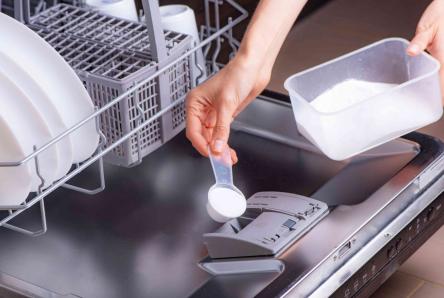
.
 The ancient Egyptians believed in the power of cleanliness as a means of purifying the body and soul. Soap was incorporated into religious practices such as bathing before temple visits, burials, and other sacred rites. The use of soap symbolized purity and spiritual cleansing, reflecting the Egyptians’ deep-rooted beliefs in the afterlife and the journey of the soul. Soap also played a role in the daily grooming routines of the ancient Egyptians. Both men and women took pride in their appearance and hygiene, using soap to cleanse their bodies, hair, and even their clothes. The fragrant scents of the soap were highly valued, and different aromas were chosen based on personal preferences and social status. The ancient Egyptians were known for their elaborate burial customs, which included mummification processes to preserve the bodies of the deceased. Soap was used in the embalming of the deceased to cleanse and purify the body before mummification. The use of soap in this ritualistic context further illustrates the Egyptians’ belief in the power of cleanliness and hygiene in both life and death. Soap-making was a skilled craft in ancient Egypt, with artisans passing down their knowledge and techniques through generations. Soap production was often carried out by specialized craftsmen who were well-versed in the art of blending various ingredients to create cleansing and fragrant soaps. These craftsmen held an esteemed position in society, as their products were highly sought after. The ancient Egyptians traded their soaps with neighboring civilizations, demonstrating the value they placed on cleanliness and personal care. Soap bars were often used as luxury items and were exchanged as gifts among the elite classes.
The ancient Egyptians believed in the power of cleanliness as a means of purifying the body and soul. Soap was incorporated into religious practices such as bathing before temple visits, burials, and other sacred rites. The use of soap symbolized purity and spiritual cleansing, reflecting the Egyptians’ deep-rooted beliefs in the afterlife and the journey of the soul. Soap also played a role in the daily grooming routines of the ancient Egyptians. Both men and women took pride in their appearance and hygiene, using soap to cleanse their bodies, hair, and even their clothes. The fragrant scents of the soap were highly valued, and different aromas were chosen based on personal preferences and social status. The ancient Egyptians were known for their elaborate burial customs, which included mummification processes to preserve the bodies of the deceased. Soap was used in the embalming of the deceased to cleanse and purify the body before mummification. The use of soap in this ritualistic context further illustrates the Egyptians’ belief in the power of cleanliness and hygiene in both life and death. Soap-making was a skilled craft in ancient Egypt, with artisans passing down their knowledge and techniques through generations. Soap production was often carried out by specialized craftsmen who were well-versed in the art of blending various ingredients to create cleansing and fragrant soaps. These craftsmen held an esteemed position in society, as their products were highly sought after. The ancient Egyptians traded their soaps with neighboring civilizations, demonstrating the value they placed on cleanliness and personal care. Soap bars were often used as luxury items and were exchanged as gifts among the elite classes.
..
 The intricate designs and fragrances of the Egyptian soaps made them highly coveted commodities in the ancient world. In conclusion, soap in ancient Egypt was not just a tool for personal hygiene but a symbol of purity, spirituality, and cultural significance. The meticulous process of soap-making, the use of natural ingredients, and the belief in the power of cleanliness all contributed to the high regard in which soap was held in Egyptian society. The legacy of ancient Egyptian soap-making techniques continues to influence modern soap production, showcasing the enduring impact of this ancient civilization on the world of personal care and hygiene. The importance of soap in ancient Egypt extended beyond practical hygiene and ritualistic purposes; it was deeply intertwined with social customs and status within Egyptian society. The use of soap was not limited to the upper classes or royalty but was also accessible to a wide range of individuals across different social strata. In ancient Egyptian households, soap was a household staple used by both men and women for daily grooming and cleanliness. The availability of soap to the general population reflected the Egyptians’ emphasis on personal hygiene and well-being at all levels of society. Soap-making techniques were passed down within families, with the knowledge of creating soap being a valuable skill that could be utilized for personal use or trade. The fragrant scents of Egyptian soaps were particularly notable, as they were often infused with essential oils and botanical extracts to create a sensory experience that went beyond mere cleansing. Aromatherapy, the practice of using scents for therapeutic purposes, was a common practice in ancient Egypt, and soap was a primary vehicle for delivering these fragrances. The scents of Egyptian soaps were varied and could range from the citrusy notes of bergamot to the floral tones of lavender or rose. Each scent carried its own symbolic meanings and associations, with some fragrances believed to invoke feelings of calmness, purification, or protection. The careful selection of scents in soap-making was not only for personal enjoyment but also for their potential spiritual and healing properties. Furthermore, the colorful and intricate designs of Egyptian soap bars added to their allure and desirability. Artisans would often mold soaps into decorative shapes inspired by nature, mythology, or religious symbolism.
The intricate designs and fragrances of the Egyptian soaps made them highly coveted commodities in the ancient world. In conclusion, soap in ancient Egypt was not just a tool for personal hygiene but a symbol of purity, spirituality, and cultural significance. The meticulous process of soap-making, the use of natural ingredients, and the belief in the power of cleanliness all contributed to the high regard in which soap was held in Egyptian society. The legacy of ancient Egyptian soap-making techniques continues to influence modern soap production, showcasing the enduring impact of this ancient civilization on the world of personal care and hygiene. The importance of soap in ancient Egypt extended beyond practical hygiene and ritualistic purposes; it was deeply intertwined with social customs and status within Egyptian society. The use of soap was not limited to the upper classes or royalty but was also accessible to a wide range of individuals across different social strata. In ancient Egyptian households, soap was a household staple used by both men and women for daily grooming and cleanliness. The availability of soap to the general population reflected the Egyptians’ emphasis on personal hygiene and well-being at all levels of society. Soap-making techniques were passed down within families, with the knowledge of creating soap being a valuable skill that could be utilized for personal use or trade. The fragrant scents of Egyptian soaps were particularly notable, as they were often infused with essential oils and botanical extracts to create a sensory experience that went beyond mere cleansing. Aromatherapy, the practice of using scents for therapeutic purposes, was a common practice in ancient Egypt, and soap was a primary vehicle for delivering these fragrances. The scents of Egyptian soaps were varied and could range from the citrusy notes of bergamot to the floral tones of lavender or rose. Each scent carried its own symbolic meanings and associations, with some fragrances believed to invoke feelings of calmness, purification, or protection. The careful selection of scents in soap-making was not only for personal enjoyment but also for their potential spiritual and healing properties. Furthermore, the colorful and intricate designs of Egyptian soap bars added to their allure and desirability. Artisans would often mold soaps into decorative shapes inspired by nature, mythology, or religious symbolism.
…
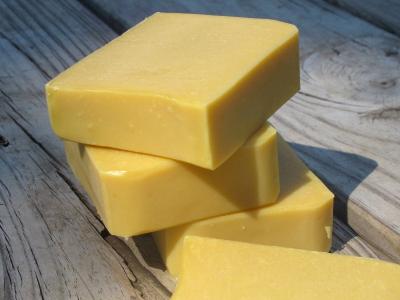 These ornate soap bars served as both functional items for personal hygiene and as artistic expressions of craftsmanship and creativity. The process of soap-making in ancient Egypt was a labor-intensive and time-consuming endeavor that required skill and precision. The ingredients used in soap production were sourced from natural sources such as plants, herbs, and animal fats, reflecting the Egyptians’ deep connection with the natural world and their respect for its resources. The alkaline salts derived from plants, such as soda ash or potash, played a crucial role in the soap-making process as they acted as the cleansing agents that removed dirt and impurities from the skin. The combination of these alkaline salts with fats or oils created a chemical reaction known as saponification, which transformed the ingredients into a solid, soap-like substance. The ancient Egyptians’ mastery of soap-making techniques was a testament to their advanced knowledge of chemistry and botany. They understood the properties of different ingredients and how they interacted with each other to create cleansing and nourishing products that benefited the skin and overall well-being. The legacy of soap in ancient Egypt endures to this day, with modern soap manufacturers drawing inspiration from the techniques and traditions of Egyptian soap-making. The incorporation of natural ingredients, essential oils, and botanical extracts in contemporary soap formulations reflects the influence of ancient Egyptian practices on modern personal care products. In conclusion, soap in ancient Egypt was more than just a cleansing agent; it was a symbol of purity, spirituality, and craftsmanship that permeated all aspects of Egyptian society. The meticulous process of soap-making, the intricate designs and fragrances of the soaps, and the cultural significance attached to their use demonstrate the profound impact that soap had on the lives of the ancient Egyptians. As we continue to appreciate the artistry and ingenuity of ancient Egyptian soap-making, we honor a tradition that has transcended time and continues to shape our perception of personal care and hygiene.
These ornate soap bars served as both functional items for personal hygiene and as artistic expressions of craftsmanship and creativity. The process of soap-making in ancient Egypt was a labor-intensive and time-consuming endeavor that required skill and precision. The ingredients used in soap production were sourced from natural sources such as plants, herbs, and animal fats, reflecting the Egyptians’ deep connection with the natural world and their respect for its resources. The alkaline salts derived from plants, such as soda ash or potash, played a crucial role in the soap-making process as they acted as the cleansing agents that removed dirt and impurities from the skin. The combination of these alkaline salts with fats or oils created a chemical reaction known as saponification, which transformed the ingredients into a solid, soap-like substance. The ancient Egyptians’ mastery of soap-making techniques was a testament to their advanced knowledge of chemistry and botany. They understood the properties of different ingredients and how they interacted with each other to create cleansing and nourishing products that benefited the skin and overall well-being. The legacy of soap in ancient Egypt endures to this day, with modern soap manufacturers drawing inspiration from the techniques and traditions of Egyptian soap-making. The incorporation of natural ingredients, essential oils, and botanical extracts in contemporary soap formulations reflects the influence of ancient Egyptian practices on modern personal care products. In conclusion, soap in ancient Egypt was more than just a cleansing agent; it was a symbol of purity, spirituality, and craftsmanship that permeated all aspects of Egyptian society. The meticulous process of soap-making, the intricate designs and fragrances of the soaps, and the cultural significance attached to their use demonstrate the profound impact that soap had on the lives of the ancient Egyptians. As we continue to appreciate the artistry and ingenuity of ancient Egyptian soap-making, we honor a tradition that has transcended time and continues to shape our perception of personal care and hygiene.
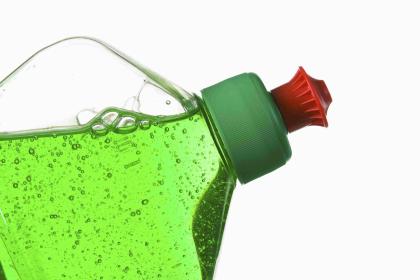
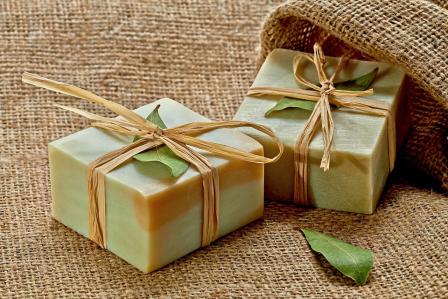




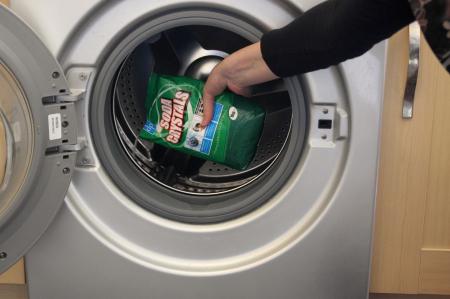



Your comment submitted.